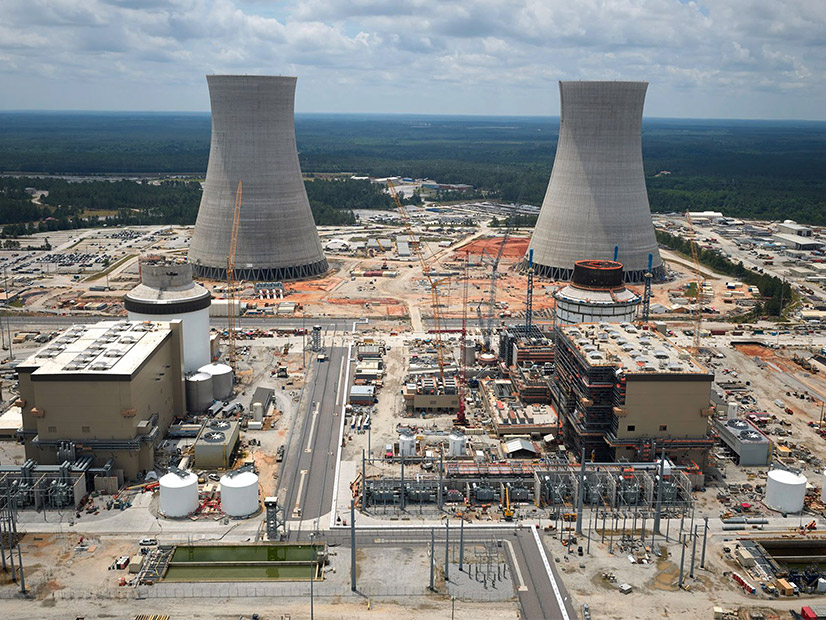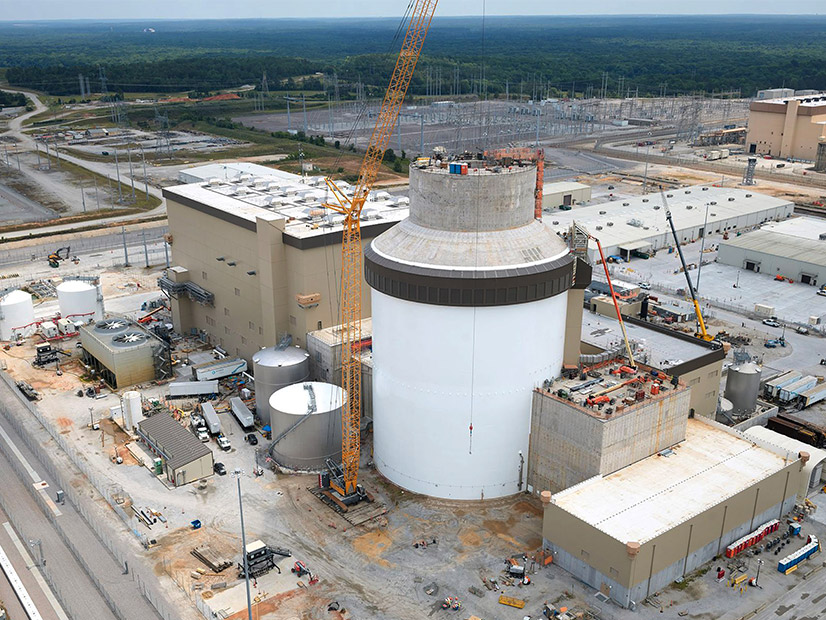The Nuclear Regulatory Commission announced Monday that it will conduct a special inspection at the Vogtle 3 nuclear reactor, currently under construction in Waynesboro, Ga., to find out why the operator, Southern Nuclear, recently conducted remediation work on the reactor’s safety systems.
NRC’s investigation will focus on Vogtle 3’s electrical cable raceway system, mainly composed of conduits and cable trays for the cables that power safety-related equipment at the plant. The raceway system ensures that such equipment has redundant sources of power so that a single event cannot disable multiple safety systems.
Inspectors “will review Southern Nuclear’s actions following the discovery that led to construction remediation work,” according to the release. Topics of the investigation include Southern’s root cause investigation, corrective actions and quality assurance process, along with potential safety implications for Unit 4, under construction at the same location.
Southern has yet to respond to the NRC announcement. The company said as of April that construction on Unit 3 was “approximately 98% complete,” and all modules for Units 3 and 4 were in place. Earlier this month Southern announced that plant equipment at Unit 4 was switched from temporary construction power to permanent power.
Hot functional testing (HFT) on Unit 3 began in April as well. HFT is the last series of major tests ahead of initial fuel load and involves raising the temperature and pressure of plant systems to normal operating levels using heat generated by the unit’s reactor coolant pumps, followed by bringing the main turbine to normal operating speed. All of these steps are performed before any nuclear fuel is added to the reactor, so NRC emphasized that “there is no increased risk to the public as Southern Nuclear … performs remediation work.”
Schedule Slips, Cost Overruns Continue
Vogtle 3 and 4 are the only reactors under construction in the U.S. following the completion of the Tennessee Valley Authority’s Watts Bar 2 in 2016, and Southern is calling them “the first new nuclear units built in the United States in the last three decades” because Watts Bar 2 began construction in 1973. When the new units come online, Plant Vogtle will be the only four-unit nuclear facility in the U.S.; Units 1 and 2 have been in operation since 1987 and 1989, respectively.

The project has drawn attention from nuclear boosters for years. In March, Nuclear Energy Institute CEO Maria Korsnick praised management and staff at Southern for pressing on, “undeterred by a global pandemic [and] getting the job done.” (See Nuclear Key to Clean Energy Future, NEI Says.)
But the fact that the pandemic was a factor in construction at all highlights the multiple delays that have formed a major criticism of the project. When construction began in 2009, both units were expected to be operational by 2017; now Unit 3 is planned to come online in January 2022, and Unit 4 later in November. (See Counterflow: The Devil Went Down to Georgia.)
However, even these estimates could be unrealistic: The Georgia Public Service Commission said last month that it expects Unit 3’s commercial operation date to “be significantly later than the [Jan. 18, 2022] forecast by the company” because of the delay in starting HFT — which was supposed to begin in January — and uncertainty about when it will be completed.
In addition, Georgia PSC staff said Southern “has greatly underestimated the duration between completion of HFT and fuel load,” scheduling only 51 days for this despite the amount of work that must be completed in this time frame.
“The company’s inability to accurately forecast the start of major milestones has been well documented over the history of the project,” commission staff said, noting also that the company had “exceeded the approved cost” of $7.3 billion and predicting future cost rises — some of which may be borne by ratepayers — because of Southern’s history of failing to meet schedule and budget targets.




